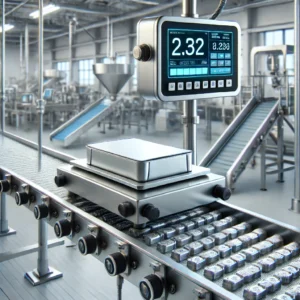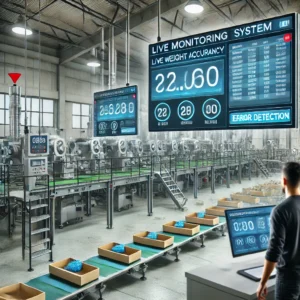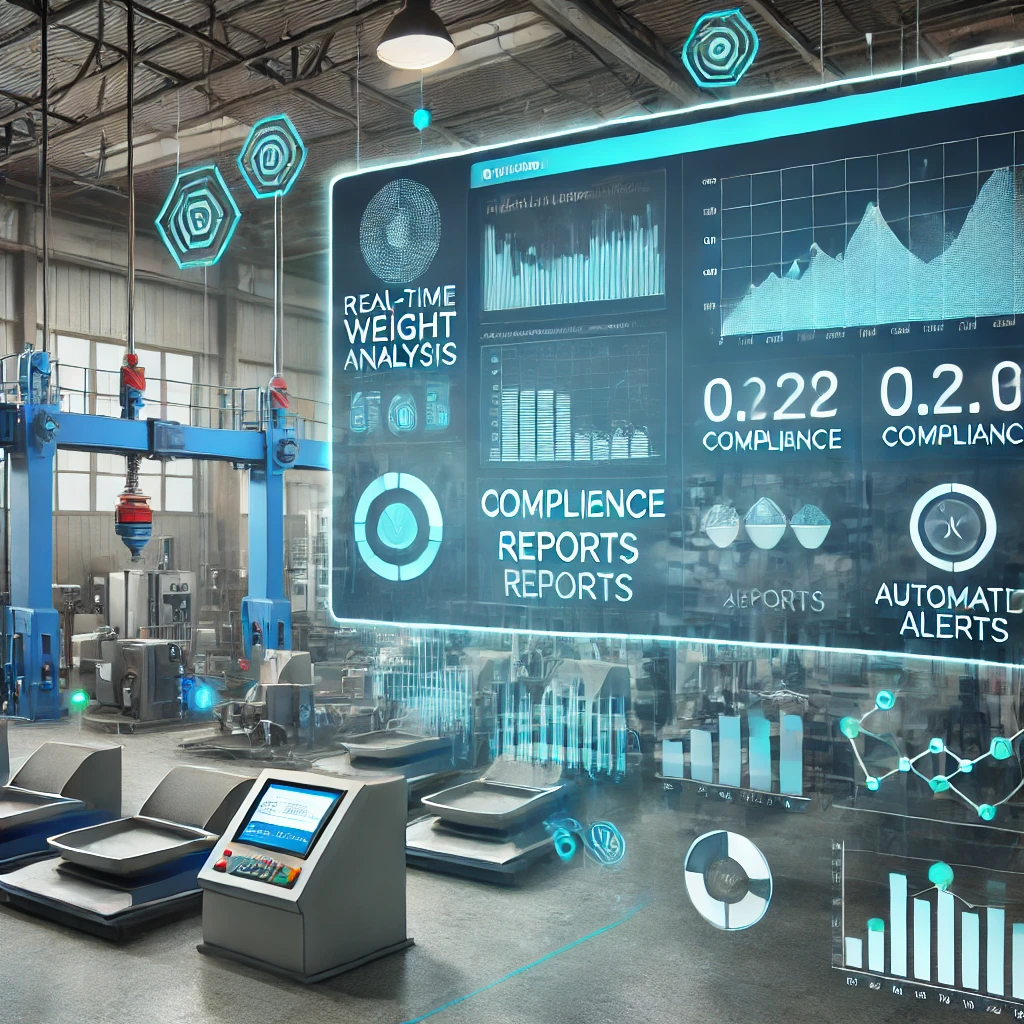Introduction
Weight accuracy is one of the most overlooked yet critical factors in manufacturing. From pharmaceuticals and FMCG to automotive and textiles, ensuring products meet exact weight specifications is key to quality assurance, regulatory compliance, and cost efficiency.
In this article, we’ll explore why weight-based quality control in manufacturing is essential, the risks of weight discrepancies, and how an automated weight verification system can solve these challenges.
Why Weight Accuracy Matters in Manufacturing

Manufacturers face strict quality standards and regulations to ensure product safety, consistency, and consumer trust. Even minor weight deviations can cause:
- Compliance violations (FDA, GMP, ISO fines).
- Product recalls due to incorrect labeling or packaging errors.
- Financial losses from wasted raw materials or overfilled products.
- Customer dissatisfaction when weight discrepancies lead to product rejection.
A real-time weight-based quality control system ensures accurate, automated weight verification, eliminating these risks and optimizing production efficiency.
The Biggest Challenges in Industrial Weight Verification
Manual Inspection is Prone to Human Error
Traditional weighing methods rely on manual intervention, increasing the risk of miscalculations and inconsistencies.
- Lack of Real-Time Monitoring
Without an automated weight verification system, manufacturers only detect issues after production, leading to unnecessary waste. - Regulatory Compliance is Complex
Industries like pharmaceuticals, FMCG, and food processing require precise weight compliance to meet legal requirements. Non-compliance results in hefty fines and recalls.


How Automated Weight-Based Quality Control Eliminates These Risks
- Real-Time Weight Monitoring – Detect weight discrepancies instantly and correct errors before they impact production.
- Regulatory Compliance Assurance – Ensure every product meets FDA, GMP, and ISO weight accuracy standards.
- Improved Efficiency & Cost Savings – Reduce raw material wastage, prevent overfilling, and lower production costs.
- Seamless ERP & Machine Integration – Works with existing production lines for minimal disruption.
Industries Benefiting from Weight-Based Quality Control
- Pharma & Healthcare – Ensures dosage accuracy and prevents regulatory violations.
- FMCG & Food Processing – Guarantees correct weight labeling and prevents underfilled/overfilled products.
- Automotive & Aerospace – Maintains component weight accuracy for safety and performance.
- Textiles & Packaging – Reduces material waste and optimizes production.
Final Thoughts: Why Weight Control Matters More Than Ever
As manufacturing evolves, ensuring weight accuracy is no longer optional—it’s a necessity for quality control, compliance, and cost reduction.
Ready to automate your weight inspection process?
[Book a Free Consultation Today]


